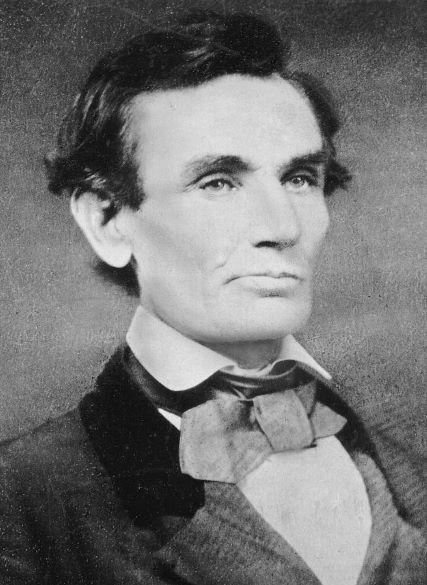He was young. Just shy of his 29th birthday.
He’d been invited to speak to a gathering of students. It was an educational group called the Young Men’s Lyceum. It offered public lectures, concerts and entertainments. The topic didn’t seem particularly entertaining: “The Perpetuation of Our Political Institutions.” The young men may have yawned. Their speaker was in dead earnest. This was important. They needed to hear it, take it to heart and mind, and commit its wisdom and truth to their lives and to the life and future of their American republic.
Nothing was more important to a proper understanding of their duty as citizens. Nothing is more important to you and me today. As citizens. As Christians. As Americans. We go back in time so we might better grasp the present and prepare for what’s ahead. The past is a great and wise teacher. It gives us retrospective, perspective, and prospective. The past gives us context, insight and guidance. “The only thing new,” remarked Harry Truman, “is the history we haven’t learned.” King Solomon put the same idea a bit differently.
“All things continue the way they have been since the beginning. What has happened will happen again; there is nothing new here on earth. Someone might say, ‘Look, this is new,’
but really it has always been here. It was here before we were” (Ecclesiastes 1:9-10). “There is no new thing under the sun.”
The young speaker was quite an orator. The students in his audience sat up and listened intently. It was January 27, 1838 in Springfield, Illinois. Abraham Lincoln’s Lyceum Address was much more than a defense of American political institutions - it was an eloquent call for the defense and preservation of American values and American liberty. Lincoln argued that law and order was the only way to guard our constitutional republic and that chaos and what he called “this mobocratic spirit …abroad in the land” would, if left unchecked, spell the end of self-government.
As the nation moved toward the cataclysm of civil war, Lincoln attacked the “ravages of mob law”, which he said were “becoming more and more frequent …the increasing disregard for law which pervades the country; the growing disposition to substitute the wild and furious passions, in lieu of the sober judgment of courts; and the worse than savage mobs, for the executive ministers of justice.”
If “the perpetrators of such acts” go “unpunished, the lawless in spirit are encouraged to become lawless in practice … they thus become absolutely unrestrained.” And to what ultimate end? “Having ever regarded Government as their deadliest bane, they make a jubilee of the suspension of its operations; and pray for nothing so much as its total annihilation.”
Watch the news. Read the headlines. See the monuments defaced and destroyed, the fires set, the mayhem and murder in the streets, and the police denounced and resisted. Authority is defied, order is overturned, chaos is celebrated. Is this not what young Mr. Lincoln warned us of?
The Bible famously says that “where there is no vision, the people perish” (Proverbs 29:18). Understood to mean, “the people are unrestrained. But happy is he who keeps the law.”
Abraham Lincoln, who was yet to reach 30, peered into the American experiment - its unrivaled strength, nobility and prosperity - and offered a sobering prophetic assessment. Based on his self-taught understanding of history, and the rise and fall of nations, he said no “transatlantic military giant” would “crush us at a blow … Never! All the armies of Europe, Asia and Africa combined … could not by force, take a drink from the Ohio, or make a track on the Blue Ridge, in a trial of a thousand years.” So, then, from where would the danger come? Lincoln knew.
“I answer, if it ever reach us, it must spring up amongst us. It cannot come from abroad. If destruction be our lot, we must ourselves be its author and finisher. As a nation of freemen, we must live through all time, or die by suicide.” As was said that cold January day in Springfield more than a century and three quarters ago, so still it must be said - our survival, happiness, and security as a nation, under the gracious benevolence of an almighty God, rests finally in the hands of the American people.
Our freedom and destiny are ours to fashion. In the midst of the Civil War, President Lincoln said, “We shall nobly save, or meanly lose, the last best hope of earth.”
What will it be? How must we dare to do our duty? To the young men in his audience, Lincoln, himself young, laid down the challenge.
“As the patriots of seventy-six did to the support of the Declaration of Independence, so to the support of the Constitution and laws, let every American pledge his life, his property, and his sacred honor; - let every man remember that to violate the law, is to trample on the blood of his father, and to tear the character of his own, and his children's, liberty.
"Let reverence for the laws be breathed by every American mother, to the lisping babe, that prattles on her lap - let it be taught in schools, in seminaries, and in colleges; let it be written in primers, spelling books, and in almanacs;-- let it be preached from the pulpit, proclaimed in legislative halls, and enforced in courts of justice. And, in short, let it become the political religion of the nation; and let the old and the young, the rich and the poor, the grave and the gay, of all sexes and tongues, and colors and conditions, sacrifice unceasingly upon its altars.”
What a speech. What a call. What a truth. What a duty.

